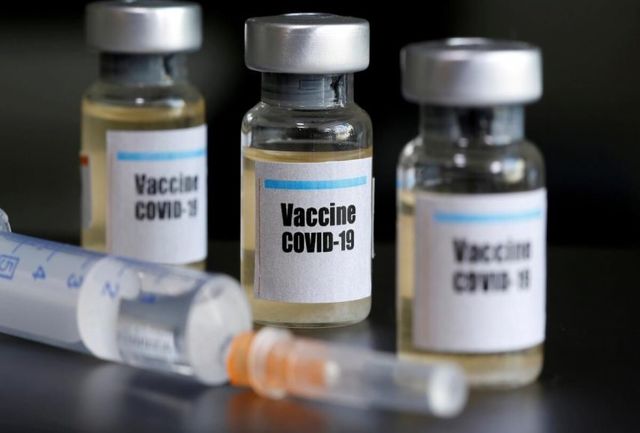In development, as the second pillar of the United Nations, the experience of racism and discrimination is not new, especially in global health. As in the first and third pillars, namely security and human rights, there are all kinds of inequalities. Nevertheless, the race to overcome the Covid-19 crisis and get the vaccine has once again unveiled the bitter reality of discrimination. Corona and quarantine seem to be an opportunity for morality and philosophy of life to emerge, but today, with the decline of multilateralism, the collapse of coalitions for the cause of self-interest, and the enduring forms of colonialism, we face an increasingly immoral world in which human beings are unequally equated. He has grown tall.
The present paper is a flip to point to some aspects of neo-colonialism in the wake of the corona vaccine, which suggests that dialogue and diplomacy should be expanded to better see the world through the eyes of the “other,” non-Western, underdeveloped or low-income countries and the rule breaking of the prevailing power discourse on the methods of corona vaccine production and distribution would prevent the world from repeating its colonial history over and over again.
Hidden Layers of Colonial Revival in Production & Distribution of Corona Vaccines & Even in Disease Treatment
The approach of developed countries in the course of scientific research on the corona pandemic and their policies for distribution of vaccines are objective examples of neo-colonial practices. In global research, especially on the status of vaccines or diseases in less developed countries, there is a serious disregard for the presence of scientists from low-income countries. Obviously, not only is the absence of thinkers from low-income countries in the study of their countries questionable, but this absence itself will lead to the continuation of backwardness and the colonial cycle.
The World Health Organization’s initial guidelines for combating corona were also presented with a global assumption of the middle class forgetting the plight of poor communities: the impossibility of social distancing in large populations; Lack of access to soap, detergent and even water and quarantine in countries with multiple wage workers. These impossible solutions mean that the World Health Organization has no understanding of the way many people in the world live.
Vaccine Testing & Monopoly by Coalition of Powers
In April 2020, a French scientist on national television suggested testing a vaccine prototype in Africa that did not respect WHO guidelines. Although the idea has once again called into question France’s credibility in the field of colonialism, with many protests around the world, one African official pointed to a more painful fact: “Who in the world is going to prevent this human experiment from taking place?”
Human trials of the corona vaccine were not limited to Africa. Trump shipped two million doses of the US vaccine to Brazil, and just days later, the vaccine was suspended in the United States. There is also a lack of human perspective in the colonial outlook of the Vaccine Coalition of France, the Netherlands, Germany and Italy, which emphasize Europe’s priority on access to the vaccine and its inhumane monopoly. A part of the German government’s statement shows “giving a share of the vaccine to Africa” and this familiar view of Christian missionaries to Africa, the land of “salvation” of the West. These promises are made not out of good faith, but in an effort to prevent the colonization of the vaccine monopoly.
The second aspect of colonialism is how to legalize the exclusive use of the resources of charities and public funds sponsoring the pharmaceutical industry and research universities to ensure priority access to a possible Covid-19 vaccine. In other words, although the sources of vaccine production came from people who saw their aid as a donation to save humanity, but with Western governments taking control of these resources, they have been given the tools of power to determine “who should live and who should die.”
An Opportunity for Thinking & Diplomacy
In the debate about neo-colonialism, no conclusions can be drawn and goodwill presented. You have to think and think of a way to end discrimination and inequality. Undoubtedly, today the production and distribution of corona vaccine has become an important geopolitical tool and has once again highlighted the geographical importance of the presence. In this environment, diplomacy and dialogue are an alternative to the prevailing discourse of power, which not only dominates unbalanced structures, but increasingly reproduces them. Diplomatic practice can expose the fabricated reality of power by expressing the views of the “other” and objecting to the existing trend.
Diplomatic dialogue is a groundbreaking process to realize the depths of inequality and imbalance for nations vulnerable to inequality. The habit of seeing inaccuracies and not realizing their existence will only be overcome in promoting alternative discourses, because under global domination of power, everything from vaccine monopoly and unequal distribution as the right of producing countries to impractical approaches proposed by the World Health Organization can be justified.
Exposing the approach of the West and international organizations provides an opportunity to think responsibly about our position in the international arena. This thinking does not mean getting off the world train all at once; it is presenting the image from one’s point of view to the world, the most important benefit of which can be recognizing one’s identity and existence and protecting it from the prevailing discourse. Undoubtedly, thought and protest do not mean opposition, but avoiding alienation and becoming a plaything in the hands of the discourse of power.










0 Comments